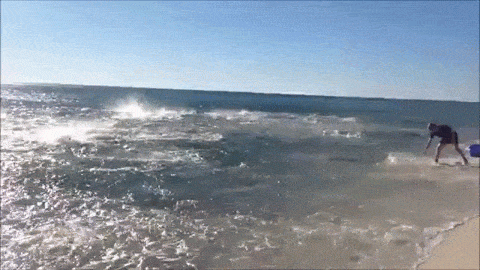- November 25, 2015
- in Green Tips
- by marcos
- 1629
- 0

It was a parent’s worst nightmare.
Tyra and Blake Whitlow were watching their four kids play in the ocean at a beach in Panama City, Florida, on Sunday when suddenly a frenzy of sharks swam up to the shore.
“The water looked like it was boiling,” Blake Whitlow told local news station WHNT 19.
“My reaction was kind of calm. … At first I thought it was porpoises,” he went on. “Then, after we figured out they were sharks, my wife quickly tried to get the kids out of the raft, on to the beach.”
Once the Whitlows got their kids to safety, they watched as hundreds of sharks thrashed around in the surf for an hour. One shark got so close to the beach, a man had to nudge it back into deeper waters.
According to experts, such frenzies are common feeding behavior for sharks.
“The sharks keep circling the fish, driving them toward the middle,” Frank J. Schwartz, a shark biologist with the University of North Carolina, Chapel Hill, told National Geographic.
“They can run them right up on the beach. They can do this for quite a while before they’re full.”

George Burgess, a shark researcher at the Florida Museum of Natural History, guessed they were blacktip and spinner sharks that came to shallow waters to feed on a school of mullets.
“Thanksgiving came a few days early for the sharks and predators,” Burgess told the Panama City News Herald, adding that the feast was a very good sign from a conservationist perspective.
“It’s spectacular when you see this on a video,” Burgess said. “To those of us that study sharks… it’s a good indication that the mullet and shark populations are returning to normalcy.”
Still, for the eyewitnesses, the spectacle was a bit unnerving.
“When you come to the beach, you wonder if you’re going to see a shark,” Tyra Whitlow told the News Herald. “This was like hundreds. It was kind of crazy.”
— This feed and its contents are the property of The Huffington Post, and use is subject to our terms. It may be used for personal consumption, but may not be distributed on a website.


